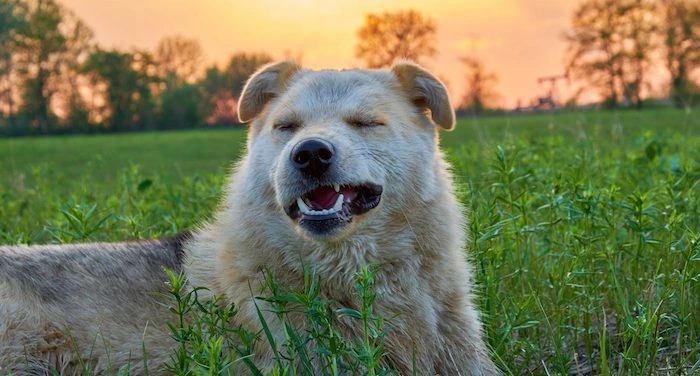Sneezing is a common behavior among dogs, and it can occur for various reasons, ranging from harmless to indicative of an underlying health issue. Understanding why dogs sneeze can help pet owners determine if a visit to the vet is necessary.
Common Reasons for Sneezing in Dogs
-
Irritation or Allergens
Dogs have sensitive noses, and they may sneeze in response to irritants in their environment. Common allergens include:- Pollen: Seasonal allergies can cause dogs to sneeze, especially during spring and summer.
- Dust and Mold: Accumulated dust or mold spores in the home can trigger sneezing.
- Strong Scents: Strong perfumes, cleaning products, or smoke can irritate a dog’s nasal passages.
-
Respiratory Infections
Just like humans, dogs can develop respiratory infections that lead to sneezing. Symptoms may include:- Coughing
- Nasal discharge
- Lethargy If a dog exhibits these symptoms along with sneezing, a visit to the vet is recommended.
-
Kennel Cough
Kennel cough is a highly contagious respiratory illness that causes a persistent cough and sneezing. It often spreads in places where dogs congregate, such as boarding facilities or dog parks. If kennel cough is suspected, veterinary attention is crucial. -
Excitement or Playfulness
Sometimes, sneezing can be a part of play behavior. Dogs may sneeze during playtime as a way to communicate excitement or to indicate that they are not being aggressive. This type of sneezing is often accompanied by a playful posture and wagging tail. -
Foreign Objects
If a dog gets something stuck in its nose, it may sneeze in an attempt to dislodge it. This can include small objects like grass or seeds. If a dog appears distressed and continues to sneeze without relief, it may need veterinary assistance. -
Nasal Tumors or Polyps
In older dogs, sneezing can sometimes indicate more serious conditions like nasal tumors or polyps. This is usually accompanied by other symptoms such as nasal discharge, bad breath, or difficulty breathing. Veterinary evaluation is necessary for a proper diagnosis.
When to See a Veterinarian
While sneezing can be normal, certain signs warrant a trip to the vet:
- Persistent Sneezing: If sneezing continues for several days or is accompanied by other symptoms.
- Nasal Discharge: Particularly if it is thick or colored, which can indicate infection.
- Coughing or Wheezing: These symptoms combined with sneezing could signal a respiratory issue.
- Changes in Behavior: If the dog seems lethargic, refuses to eat, or shows signs of distress.
Conclusion
Sneezing is a common and usually harmless behavior in dogs, often related to irritants or excitement. However, it's essential to monitor the frequency and context of sneezing, along with any additional symptoms. If there are any concerns about a dog's health or sneezing, a consultation with a veterinarian can provide clarity and peace of mind.
Takeaway Tips:
- Monitor sneezing frequency and context.
- Check for additional symptoms like nasal discharge or lethargy.
- Consult a vet if sneezing is persistent or accompanied by concerning signs.


